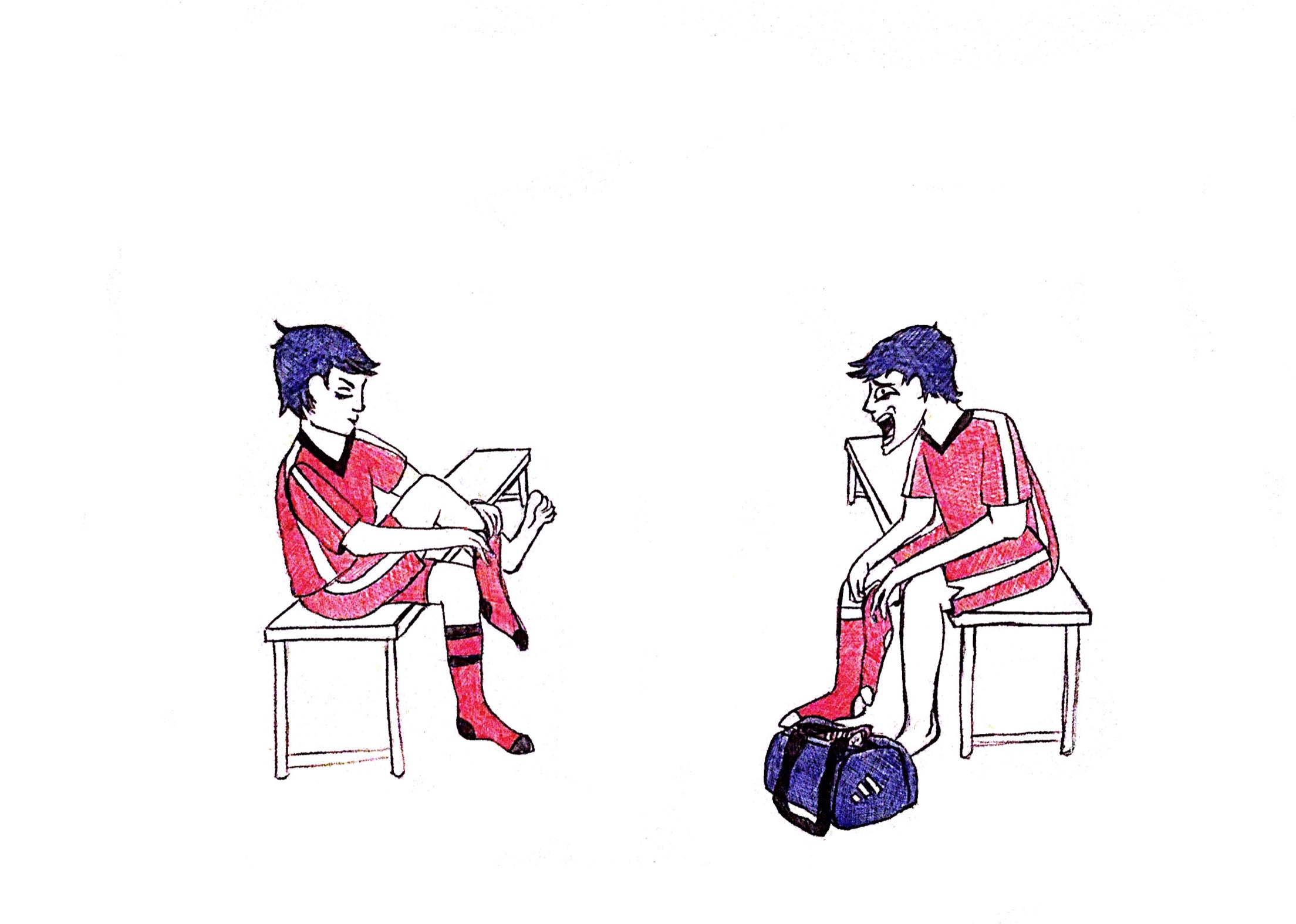In 1982, only one game stood between the Cameroonian national soccer team and its first-ever trip to the FIFA World Cup. The night before the big game, Head Coach Jean Vincent decided to visit the team captain in his hotel room. He walked down the hall and knocked on the captain’s door. No one answered. Jean went from room to room until he finally reached the last door. The door was ajar and Jean peered in to find his entire team asleep together on the hotel floor. Cameroon qualified for the World Cup the next day.
Team Cameroon employed a superstition. Superstitious beliefs date back to ancient religious rites and tribal customs, arising in the face of stressful situations and uncertainty in order to create a semblance of control. Psychologists believe superstition to be the incorrect assignment of cause to effect, as these beliefs are retroactively linked with an event’s outcome. Sports, by design, cause stress and uncertainty for which superstition serves as a coping mechanism. It is unsurprising, then, that superstition has become such a prevalent force among athletes across disciplines. Despite its ubiquity, however, the phenomenon of superstition in sports remains largely understudied.
McGill men’s soccer Head Coach Marc Mounicot holds a master’s degree in sports psychology and wrote his thesis about the effects of superstition on soccer players’ pre-game anxiety levels. He spoke to the difficulties of researching superstition’s effects on athletes’ performance.
“One of the problems with superstition is that everyone is reluctant to speak about it,” Mounicot said. “It’s something very sacred to the individual.”
Mounicot noted that, while it is hard to discuss, superstition does hold a certain appeal to outsiders as a sensationalized storyline.
“People [are] very interested [in hearing about] the subject because it’s very connected to some unknown,” Mounicot said. “When we tried to build the questions [and talk to people…], we couldn’t go too deeply into personal beliefs or personal things because we knew we could reach a wall.”
As a result, Mounicot’s research was unable to conclude that any real correlation exists between superstitious beliefs and decreased pre-game anxiety. Other research, however, has indicated that superstitious practices in sports may actually have a direct impact on an athlete’s accomplishments. Research found that invoking a good-luck charm, such as an article of clothing, leads to superior performance in golf, as well as improved motor dexterity and memory. Further, research suggests that an increase in perceived ability boosts an athlete’s confidence which, in turn, improves performance.
For many McGill athletes, superstitions are commonplace yet consciously unrecognized or unexplored.
“First off, I put [on] my […] right sock, right shin pad, and right shoe, but I put my left glove on first,” McGill second-year goalkeeper Théo Farineau said. “I have no idea why I do it, but I feel like I’ve always been doing it, and, if I change it, it’s really going to mess up my focus.”
Farineau’s superstitions do not end there: He never steps on the opponent’s side of the pitch; he walks around the field at halftime; he touches his crossbar before each half.
“When I think about it now, I know it’s completely dumb, but I wouldn’t change it,” Farineau said.
Griffin Callahan-Auger, U1 Arts, plays intramural hockey and shares similar feelings. His primary superstition is that he plays best in his second games after sharpening his skates, so he plans accordingly.
“It’s a peace of mind thing,” Callahan-Auger wrote in a message to The McGill Tribune. “There is just no point risking stopping because it isn’t causing any harm right now.”
Superstition is unique to every individual, which Mounicot acknowledges. He makes a point not to observe any superstitious practices that his players may employ out of respect for their privacy.
“I see the game preparation and game routine as very personal, so [I] try not to interfere with this,” Mounicot said.
Further research has shown that an individual’s commitment to a ritual is generally higher as a given game’s uncertainty and importance increases. Additionally, researchers found that personality affects the likelihood that an individual will hold and be committed to superstitious beliefs.
Despite researchers’ limited understanding, superstition has a monumental impact on the professional sports world in which players and fans alike display some of the most unconventional practices.
Michael Jordan’s rituals have had a lasting impact on basketball culture. After winning the NCAA championship with the University of North Carolina, he wore his alma mater’s blue shorts as a good-luck charm underneath his Chicago Bulls jersey for every game. Jordan went far out of his way to uphold this tradition; in addition to incurring several fines, he was also forced to wear longer shorts throughout his career. The latter trend quickly caught on in the basketball world. Longer shorts went on to become integral to the modern era of basketball.
There are plenty of other superstitious athletes. Baseball Hall of Famer Wade Boggs started his batting practices at exactly 5:17 and his running sprints at 7:17. He devoured chicken before every game, earning him the nickname of the ‘Chicken Man.’ Serena Williams bounces the ball five times before her first serve, twice before her second, and wears the same socks from the beginning to the end of each tournament. Montreal Canadiens goalie Patrick Roy skated backwards, from centre ice toward the net, turning around at the last second in order to shrink the goal during his career. He believed this practice made it more difficult for opponents to score on his net.
Superstition has also shaped fans’ experiences. In baseball, there are certain unwritten rules: While a pitcher is throwing a no-hitter; teammates will not talk to their pitcher, opposing teams will not bunt, and fans and broadcasters will refrain from talking about the pitcher’s potential achievement. Male hockey players and fans share the tradition of growing playoff beards. A few unfortunate fans even believe that it is bad luck for them to watch their teams play. Fans seek certainty just as much as athletes and can find enjoyment and entertainment in the futile pursuit of victory.
While superstition remains poorly understood on the scientific front, it has, nonetheless, become ingrained in sporting culture. Superstition invokes an unorthodox sense of control for individual players and community for teams and fans, allowing everyone to feel like they are an important part of the action.









